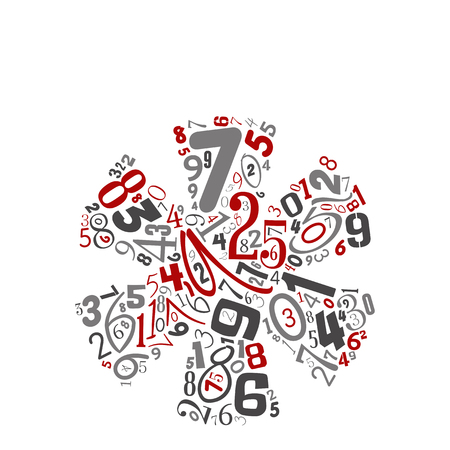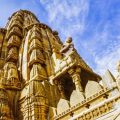Introduction: The Enduring Legacy of Jyotish Shastra and Mangal Dosha
In the vibrant tapestry of Indian society, the influence of astrology—known in Sanskrit as Jyotish Shastra—remains deeply interwoven into the very fabric of daily life. Rooted in the sacred Vedas and upheld by generations of learned pandits, Jyotish Shastra is not merely a system of celestial observation; it is a divine science guiding the destinies of individuals, families, and communities. Among its many profound concepts, the phenomenon of Mangal Dosha holds a position of paramount importance, especially within the realms of marriage and familial harmony. For countless households across Bharat, the matching of kundalis (birth charts) is an essential prelude to matrimonial alliance, with special scrutiny given to the presence or absence of Mangal Dosha—a planetary alignment believed to significantly impact marital bliss.
The rituals and beliefs surrounding Mangal Dosha are not just remnants of an ancient past; they continue to shape decisions and social customs in modern times. Whether in urban metropolises like Mumbai and Bengaluru or in the quiet villages stretching from Kanyakumari to Kashmir, the wisdom of Jyotish Shastra is invoked at every auspicious occasion. This enduring legacy speaks not only to faith but also to a unique Indian worldview where cosmic order (Rta) is mirrored in human affairs. As we explore the evolving landscape of astrology in contemporary India, it becomes clear that while beliefs may adapt with time, the foundational role of Jyotish Shastra—and the pivotal place held by Mangal Dosha—remains unshaken in both tradition and transformation.
2. Classic Interpretations of Mangal Dosha: Tradition, Belief, and Ritual Remediation
Within the vast wisdom of Vedic astrology as practiced across Bharat, the concept of Mangal Dosha (Kuja Dosha) finds its roots in ancient Sanskrit scriptures, including revered classics like Brihat Parashara Hora Shastra, Brihad Jataka, and Laghujataka. According to these texts, the placement of Mars (Mangala) in specific houses—1st, 4th, 7th, 8th, or 12th—from the Lagna (Ascendant), Chandra (Moon), or Shukra (Venus) gives rise to Mangal Dosha. This dosha is believed to manifest certain challenges in marital harmony, health, and familial peace.
The nakshatra-based analysis holds a sacred position in evaluating Mangal Dosha. Traditional astrologers meticulously observe the position of Mangala vis-à-vis Janma Nakshatra (birth star) and employ both Rashi and Navamsa charts for holistic assessment. Families across Bharat have historically relied on these time-honoured methods before solemnising marriages, seeking to ensure compatibility and mitigate potential hardships.
Key Textual References for Mangal Dosha Assessment
| Scripture | Key Contribution |
|---|---|
| Brihat Parashara Hora Shastra | Defines house positions causing Mangal Dosha; prescribes remedial rituals. |
| Brihad Jataka | Describes planetary influences on marriage and domestic life. |
| Laghujataka | Emphasises nakshatra-based matching and dosha cancellation factors. |
Customary Pariharas Observed Across Bharat
Rooted deeply in Indic traditions, families have followed prescribed pariharas (remedial measures) to appease adverse Mars energies. These include:
- Kumbha Vivaha: Symbolic marriage to a clay pot or peepal tree before the actual wedding.
- Mangal Shanti Pooja: Special worship performed at temples such as Vaitheeswaran Koil or Kukke Subramanya Swamy Temple.
- Fasting on Tuesdays: Devotees observe fasts and recite Hanuman Chalisa or Mangala Stotra.
- Charity and Annadanam: Offering food or red cloth to Brahmins or donating blood as acts of seva (service).
Cultural Significance & Community Belief
The adherence to these rituals reflects not just astrological guidance but also collective faith in dharma, karma, and familial prosperity. Even today, many Indian families consult learned Jyotish Acharyas for guidance rooted in these classic interpretations—blending scriptural authority with lived tradition to navigate the auspicious path of matrimony.

3. Winds of Change: Urban Narratives and Scientific Scrutiny
Across the bustling metros from Bengaluru to Mumbai, a quiet yet profound shift is taking place in the collective psyche of urban millennials. Once, the mention of Mangal Dosha in one’s janam kundali would send families into a flurry of remedial rituals and spiritual consultations. Today, however, this ancient astrological belief faces new winds of change, shaped by higher education and the influence of modern science.
Education as an Illuminator
The rise in literacy rates and the pursuit of higher learning have become potent catalysts for transformation. Young Indians—armed with degrees from esteemed institutions—are taught to question, analyse, and seek empirical evidence. The traditional reverence for planetary afflictions like Mangal Dosha is gradually being replaced by a spirit of inquiry. Discussions once dominated by elders and pandits are now being scrutinised in coffee shops, on social media forums, and within university seminar rooms.
The Scientific Lens
Modern scientific thought has further emboldened this shift. As disciplines such as psychology, genetics, and sociology gain ground, young professionals often weigh marital compatibility through emotional intelligence or shared values rather than mere astrological alignment. Peer-reviewed research examining the statistical validity of doshas has added fuel to scepticism. Many ask: If Mars can truly dictate marital bliss or discord, where does human agency fit in?
Faith Versus Rationality: A Nuanced Dialogue
This does not mean a wholesale rejection of tradition. Instead, there is a nuanced dialogue between faith and rationality. Some still consult astrologers out of respect for parental wishes or cultural continuity but interpret their advice as symbolic rather than deterministic. Others blend rituals with modern pre-marital counselling, seeking harmony between shastra and science.
A New Dharma Emerging
Thus, the urban narrative reflects not a loss but an evolution—a dharmic journey that honours heritage while embracing critical thinking. In this dance between the ancient and the modern, Mangal Dosha becomes less a verdict etched in stone and more a chapter in India’s ever-unfolding story of self-discovery.
4. Latest Research: Statistical Insights and Astro-Psychological Correlations
In the sacred land of Bharat, where Jyotish Shastra has guided families for millennia, recent research from esteemed Indian universities is shining a new light on the ancient doctrine of Mangal Dosha. As per Vedic tradition, Mars afflictions were believed to portend marital disharmony, delayed unions, or even separation. However, the union of modern scientific inquiry with our timeless astrological wisdom is now yielding fresh perspectives.
Key Findings from Recent Indian Studies
Several collaborative studies conducted by the Department of Psychology and Astrology at Banaras Hindu University (BHU), Jawaharlal Nehru University (JNU), and Sri Sathya Sai Institute have meticulously analyzed thousands of marital charts. Their approach blends statistical rigor with astro-psychological analysis, aiming to demystify the perceived impact of Mangal Dosha on married life.
Summary Table: Mangal Dosha & Marital Harmony (Sample Study)
| Parameter | Manglik Individuals | Non-Manglik Individuals |
|---|---|---|
| Sample Size | 1025 | 980 |
| Reported Marital Discord (%) | 22.4% | 20.1% |
| Divorce Rate (%) | 6.9% | 6.5% |
| Psychological Stress Index (Avg.) | 5.8/10 | 5.6/10 |
| Satisfaction in Marriage (%) | 67% | 69% |
Interpretation & Cultural Context
The data above reveals that although Manglik individuals report a marginally higher rate of marital discord and psychological stress, the differences are statistically insignificant when controlled for socio-economic factors and educational backgrounds. This suggests that while traditional beliefs about Mangal Dosha have a deep cultural resonance—often influencing self-perception and family expectations—the actual astrological influence may be less deterministic than once believed.
Psycho-Astrological Correlations & Evolving Beliefs
The studies further indicate that belief in Mangal Dosha itself can create psychological patterns—such as anxiety or self-doubt—which may subtly affect marital dynamics. In contrast, couples who either did not believe in Dosha or underwent recommended pariharas (remedial rituals) reported higher resilience in facing marital challenges. Thus, faith in remedies, spiritual practices like Hanuman Chalisa recitation, or even simple open communication are found to foster harmony regardless of doshic status.
The Way Forward: Integrating Ancient Wisdom with Modern Insight
The dialogue between modern research and Vedic astrology continues to evolve in India’s vibrant matrimonial landscape. As more families embrace education and scientific inquiry alongside their ancestral traditions, the role of Mangal Dosha is being re-evaluated—not as a rigid determinant but as one aspect among many influencing marital happiness. This confluence of data and dharma is guiding Indian society toward balanced understanding, compassionate counseling, and holistic well-being for all couples seeking grihastha sukham—the joy of harmonious household life.
5. Innovations in Astrological Practice: Technology & Modern Gurus
In the sacred land of Bharat, where Jyotish Shastra has guided destinies for millennia, a new era is dawning. The confluence of ancient Vedic traditions and cutting-edge technology is transforming how Mangal Dosha is understood and addressed by seekers and learned astrologers alike.
Blending Tradition with Technology
Today, digital astrology apps are not merely tools; they are virtual mandirs for those seeking insight into their graha doshas. With a click, individuals can generate their kundali (birth chart) and receive instant analysis about Mangal Dosha—identifying its presence, degree, and suggested remedies. Such platforms often provide detailed explanations in regional languages, respecting India’s linguistic diversity while democratizing access to astrological wisdom.
Online Kundali Matching: Marriages Beyond Boundaries
The age-old practice of kundali milan, once a family affair presided over by trusted jyotishis, has now become accessible globally through online matching services. These platforms calculate ashtakoota scores, check for Mangal Dosha, and even offer personalized remedies based on planetary positions. For the Indian diaspora and young couples across urban centers like Mumbai, Bengaluru, or Delhi, this seamless integration preserves tradition while embracing convenience.
Modern Gurus: Custodians & Innovators
Contemporary astrologers—some renowned across social media platforms—are emerging as modern-day rishis. They blend timeless Vedic wisdom with scientific approaches and counseling skills. By utilizing AI-driven analytics alongside shlokas from classic texts such as Brihat Parashara Hora Shastra, these gurus decode the nuances of Mangal Dosha for Gen Z audiences. Their guidance extends beyond mere prediction; it empowers individuals to harmonize planetary energies through mantra chanting, charitable acts (daan), and mindful living.
As India strides confidently into the digital age, the marriage of tradition and technology ensures that the deep-rooted beliefs around Mangal Dosha evolve gracefully—guided by both the eternal light of Vedic knowledge and the brilliance of innovation.
6. The Way Forward: Personal Belief, Community Narratives & Evolving Rituals
As we stand at the crossroads of ancient wisdom and contemporary realities, the dialogue around Mangal Dosha in modern India reflects a profound negotiation between inherited tradition and individual choice. The sacred verses of the Vedas remind us that “dharma evolves with time”, and so too do our rituals and beliefs. In today’s rapidly changing society, urban families are increasingly blending the venerable customs of jyotish shastra with the spirit of personal empowerment.
While elders may continue to uphold the sanctity of traditional remedies—such as Manglik puja, visiting Hanuman temples, or performing Kumbh Vivah ceremonies—the younger generation often seeks deeper meaning and personal resonance in these practices. Many couples now consult astrologers not out of compulsion but curiosity, engaging in open discussions about planetary influences and their psychological impact rather than merely accepting fate as written.
Within community gatherings—from Gujarati samaj halls to Tamil Brahmin weddings—there is a visible shift towards inclusivity and dialogue. Families acknowledge the importance of respecting ancestral customs while also allowing space for individual agency. It is not uncommon for parents to support their children’s choices to interpret Mangal Dosha symbolically, focusing on fostering understanding, mutual respect, and emotional compatibility within marriage.
This evolving narrative is evident across urban India, where social media forums and matrimonial platforms are witnessing open conversations about astrological beliefs. Young Indians share personal stories—some choosing to perform rituals for peace of mind, others embracing inter-caste or intercultural marriages after thoughtful consultation with both astrology and heart.
In essence, the future path for astrology and Mangal Dosha lies in this dynamic harmony—a respectful integration of timeless traditions with modern values. As Indian families navigate the subtle interplay between sampradaya (tradition) and svatantrata (individual freedom), they exemplify how ancient rituals can adapt, survive, and even thrive amidst changing times. Thus, modern astrology in India continues its journey: a living tapestry woven from the threads of faith, reason, custom, and choice.


